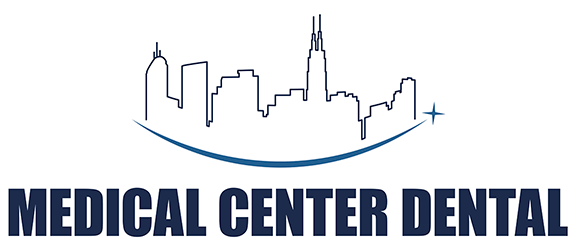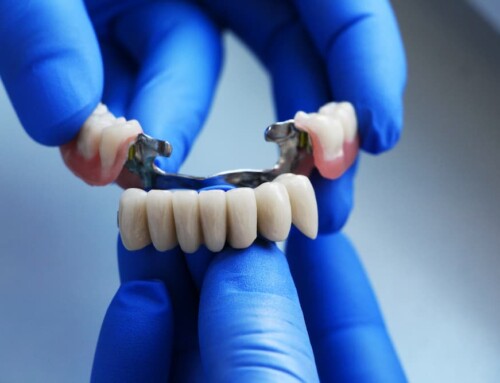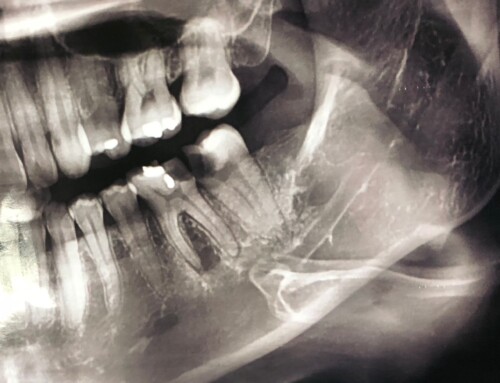When you think about overall health, you may not connect it to your oral habits, but did you know they are directly related? If your oral health can affect your overall health, it’s important to visit the dentist regularly. Whether for a dental cleaning or to have a painful tooth checked out, oral health plays a vital role in ensuring you feel good.
The Difference Between Oral and Overall Health
Before diving into how oral and overall health are connected, let’s discuss differences between the two. Oral health is specific to your mouth. It includes your teeth, gums, tongue, throat and face surrounding your mouth. It refers to the ability to speak, smile, bite and chew, according to the World Health Organization.
Overall health is specific to your entire body. According to MedlinePlus in the U.S. National Library of Medicine, systemic diseases, or diseases that impact the whole body, are referred to as overall health issues. These issues include your bones, blood, skin and internal organs. Localized infections or diseases are also part of your overall health.
The Connection Between Oral Habits and Overall Health
Now that we’ve covered the difference between oral and overall health let’s take a look at how oral health can affect your overall health.
Infections and Diabetes
According to multiple studies, diabetes and oral infections have a direct correlation. Someone with poor oral health is at a higher risk of becoming diabetic due to abnormal blood sugar levels. Unfortunately, due to the nature of the systemic disease, people with diabetes have a higher susceptibility to infections than other individuals. These infections include infected gums or periodontal disease. What’s worse is gum disease can cause blood sugar levels to go out of control, complicating a diabetic’s overall health even more. This is why it’s important for someone with diabetes, or those at risk of diabetes, to visit a dentist regularly.
Inflammation and Cardiovascular Disease
Researchers Thomas E. Van Dyke, Robert J. Genco, and Karim El Kholy offer evidence of a connection between oral inflammation and cardiovascular disease. Oral inflammation is caused by gingivitis. This inflammation causes other areas of the body to become inflamed, including the arteries. The result is a higher risk of stroke and heart attack. Proper oral health allows individuals to avoid gingivitis, inflammation and potentially cardiovascular disease.
Periodontitis and Preterm Birth
Research suggests that when a pregnant woman has Periodontitis, it leads to preterm birth of babies who often have a lower birth weight. The inflammation of the gums will get into the bloodstream, targeting the baby. This happens because endotoxins from the infection produce prostaglandins and cytokines, which stimulate labor. Unfortunately, Periodontitis is common in pregnant women, but with regular dental care by a qualified dentist, the chances are significantly reduced.
Oral Bacteria and Endocarditis
Similar to what happens with preterm birth and cardiovascular diseases, oral bacteria can get into the bloodstream and spread to other areas of the body. Endocarditis is when the heart’s inner lining becomes infected, which can happen from oral bacteria spreading to it. A professional dental cleaning and proper care at home will reduce the chance of this happening.
Gingivitis and Memory Loss
The University of Central Lancashire School of Medicine and Dentistry in England produced a study conducted on people with and without dementia. Researchers found bacteria from gum disease only in patients who had dementia by studying the subject’s brain tissue samples. They suggest that the gingivitis began in the mouth and bacteria then traveled through the bloodstream to the brain where brain cells were killed, and memory was lost. Though every mouth contains bacteria, it could prolong memory to avoid gingivitis.
Decaying Teeth and Mental Health
Decaying teeth and gum disease often lead to bad breath and a painful mouth. Sometimes people with these issues find themselves with low self-esteem and less confidence. They may find that eating becomes less pleasurable, so they don’t receive the nutrition they need. These issues can potentially harm someone’s mental health. Visiting a dentist regularly and using proper hygiene practices can help someone to avoid this. When people look better, they often feel better. Good oral habits may help an individual concentrate more, eat and sleep better, and feel more confident in general.
Bad Bacteria and Respiratory Infections
Researcher Frank Scannapieco connected oral bacteria and respiratory infections in a study he conducted. He suggests bad bacteria can be aspirated into the lung. When the bacterium reaches the lung, bronchitis, COPD, pneumonia and other respiratory infections can result. The process can also occur when the bacterium enters the bloodstream and reaches the lungs. Brushing twice per day, flossing once per day and visiting the dentist twice per year is the best defense against this happening.
Gum Disease and Rheumatoid Arthritis
Johns Hopkins Hospital conducted research that suggests the bacterium from gum disease triggers rheumatoid arthritis (RA). Experts studied 196 patients who had been previously diagnosed with RA. Nearly 50 percent of these individuals had the gum disease bacterium. In the healthy group tested, the bacterium was only found in 11 percent of people. This suggests a higher chance of triggering RA if the gum disease bacterium is present in a person’s bloodstream. Whether someone has a family history of RA or not, it’s important to stay on top of oral hygiene as a way to prevent or postpone the disease.
Why You Should Visit the Dentist More Often
By visiting the dentist more often, you can avoid the risk of rheumatoid arthritis, mental health issues, cardiovascular disease, and other debilitating diseases. Some other reasons include having your mouth checked for loose or broken teeth, overbite, damaged fillings, or the beginnings of a cavity. The dentist can also evaluate the condition of dental appliances, assess tooth contact, and get a more in-depth look with x-rays.
During your dental visit, you will also receive a professional cleaning. While you might be great at keeping your teeth clean on a regular basis, it’s important to have them professionally cleaned at least twice per year. A professional cleaning rids your teeth of plaque and tartar that you cannot get rid of with a toothbrush. They will also polish and floss your teeth. The dentist may go over proper brushing and flossing practices with you.
One final reason to visit the dentist on a regular basis is to set an example. If you have children or grandchildren, you should show them the importance of proper oral health. In turn, it will be important to them, and they will learn good oral practices from a young age.
Place Your Overall Health First
Whether you already visit the dentist on a regular basis, or you haven’t been to a dental office in a while, Ingenious Dentistry has a group of professionals waiting to assist you. We help all patients improve their oral health so they can improve their overall health. For answers to your oral questions or schedule your dental cleaning today, contact us by filling out our online form and we’ll get in touch with you shortly. We look forward to assisting you and helping you get your healthy smile back.






